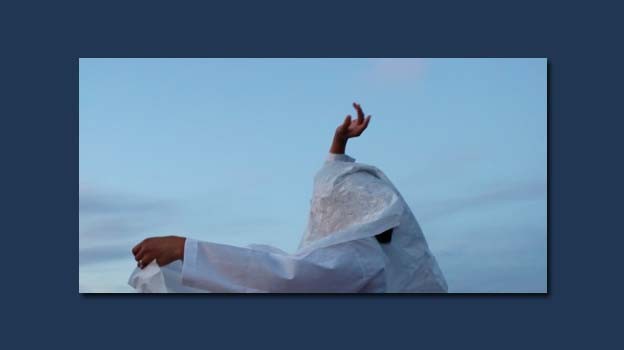한 :: Concept : Spirit : Break

I am a Conceptual writer. I’m also “just” a “writer.” I’m a body and a mind and a woman and the child of immigrants, and I am sexual and sometimes contradictory and on the move. And I write.
The ways I hear “Conceptual writing” discussed often feel limited to me, given the capaciousness of the term “concept.” I hear it so often discussed under terms that seek to erase authorship through mechanistically procedural habits or found/repurposed language. There’s additionally a sad whiteness factor to who gets considered under such a banner. It’s an old problem. It persists, along with the way western values privilege abstraction as intelligence or “real” knowledge, demarking what is of noteworthy contribution.
And so, I reiterate. I claim. I mark out. I take. I am a Conceptual writer.
I write out of a nexus of interests and concerns. I write to express my feelings and trace those feelings’ roots. By doing so, I hope to maybe identify some of the social phenomena that perpetuate and create them. I write to consider. I write to consider otherwise.
Another way I am a “Conceptual” writer is that my work is often rooted in exploring “concepts.” Furthermore, I am interested in and creatively sustained by certain notions that have zero basis in western historical structures of knowledge.[1]
For example, I am very interested in understanding 한 (han). It’s a “Korean” cultural ethos. I use scare quotes around the adjective “Korean” because 한is an ethos and value — a spiritual structure and feeling — that antedates nation forms or what we imagine the nation of “Korea” to be and mean.[2]
한is a powerful concept for understanding devastation, anguish, bitterness, loss. It’s helpful for understanding suffering and power. I refuse to enlist or name those commonly trotted out thinkers who also consider such dilemmas. It’s not tied to western judeo-christian-ish philosophical dilemmas around power or suffering, and most especially conceptual divisions between perception and abstraction, which it simply doesn’t bother to consider as a question. And that is its immense value to me. In 한, a body is a feeling is a weeping is a history and drowning release. Blood and sky, this 한. Such immensities. I feel 한in some of Myung Mi Kim’s work, in Don Mee Choi’s translations of Kim Hye Soon. I see 한in contemporary Korean cinema, like Mother or Poetry. I feel 한 myself when I sit down and let some of the intense sadness of my family story wash over me. It dances with the slow sweep of a white sash into the sky, held aloft beyond tears. Out of suffering, it lives and rises while it drowns. It has a magma intensity. It burns me down and does not allow me to forget.
This 한 I try to understand is a very specific thing. It’s rich and painful and eludes me but I feel that trying to engage and understand it enriches my ability to make sense of myself in the world — the shapes and powers that inform not just my life and worldview, but countless others who are Korean diasporic subjects.
What my considerations of 한 have also allowed me to explore and inhabit is a richly helpful asymmetry. With 한, things are broken and irreconcilable. There aren’t any patterns one can hold to. It simply moves. And as satisfying as a procedure or strict form can be for me, such shapes do not need to dictate the outlines or contributions of “the conceptual” in my work. Conceptual does not need to be symmetrical or recognizably organized. The body and spirit organize things according to their own structures and tides, and that is also quite valuable for how it moves beyond the orders I can feebly comprehend with my human apparatus. To recognize a space is to have perhaps some illusory master over it. The asymmetries and irreconcilabilities of pursuing and tracing 한 push me into what I do not know and perhaps cannot know.
And for that, I am grateful.
1. If it isn’t western, dare it be a “concept”? The ridiculousness of such a question points to the ridiculousness of invisible biases that seek to appropriate vital alterities only in terms of western ideological parameters.
2. That said, I do think my personal understanding and experience of 한is deeply interwoven with the problematics of nation forms and “Korea’s” subjection to nation-building efforts.
Edited by Divya Victor